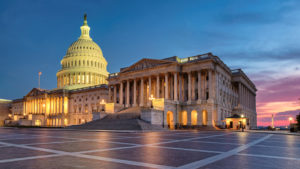Using VSLs in State and Local COVID-19 Policy
VSLs can serve as a foundational tool for policymakers at all levels of governance amid the COVID-19 pandemic.
Analyzing COVID-19 Policymaking
Experts assess the use of VSLs and benefit-cost analysis for pandemic decision-making.
The Other CARES Act Funding Accountability Story
Agencies must ensure proper use of funds, but complex compliance rules may stunt noble policy goals.
COVID-19 and Uncertainties in the Value Per Statistical Life
Uncertainties in value per statistical life estimates impact the extent to which COVID-19 policies yield net benefits.
Rethinking Benefit-Cost Analysis for COVID-19
The normative foundations of the value of statistical life render it an insufficient tool to analyze pandemic-related policies.
Co-Producing Safe Farmers Markets During COVID-19
State and local governments should embrace farmers market managers’ input on food regulation during the pandemic.
The Americans with Disabilities Act Thirty Years Later
Experts address the ADA’s relevance to modern life, thirty years after its passage.
A Failure of Administrative Law in OSHA During the Pandemic
The hyper-deference courts provide to agencies has failed to protect workers from OSHA inaction amid COVID-19.
Law, Leadership, and Legitimacy in a Time of Disease
This publication’s COVID-19 series offers vital lessons about law and effective governance in response to public health threats.
Tracking Legal Responses to COVID-19
The Regulatory Review’s extensive COVID-19 global series exemplifies Penn Law’s international and cross-disciplinary strengths.
Comparative Administrative Law Matters in the Fight Against COVID-19
The Regulatory Review’s global COVID-19 series offers valuable lessons that can help improve administrative law and policy.
Portugal’s Response to COVID-19
Timely and extensive interventions have facilitated Portugal’s success in addressing COVID-19.












